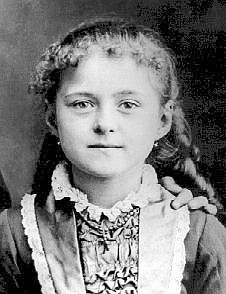God of Mercy and Compassion
Et pourtant il la désire, Il la veut depuis toujours, Depuis toujours elle attire Son regard brûlant d'amour.
I must tell you, dear reader, how very much more beautiful the French version of this hymn is.
My favourite Hymn - and how apt it is now Lent.
My darling dearest Jesus, for you:
Jésus-Christ monte qu Calvaire,
Il y va pour y mourir.
Suivons-Le, c'est notre frère,
Qui pour nous, voulut souffrir.
En mourant, Il nous délivre
Du fardeau de nos péchés,
Et celui qui veut le suivre,
Sous la Croix devra marcher.
Chez Pilate, on le compare
Au dernier des scélérats.
Que dis-tu, peuple barbare?
Tu réclames Barabbas!
Quelle indigne préférence;
Le coupable est pardonné
Et malgé son innocence,
Jésus-Christ est condammé.
Mais voici que l'on présente
Une croix au doux sauveur,
Sur sa chair encor sanglante,
Elle ajoute à ses douleurs.
Et pourtant il la désire,
Il la veut depuis toujours,
Depuis toujours elle attire
Son regard brûlant d'amour.
O Jésus, vos mains calleuses,
Ont manié bien d'autres bois.
Vos épaules laborieuses
Ont plié sous d'autres poids.
Il est donc bien redoutable
Ce fardeau, mon doux Jésus,
Puisque ce poids vous accable
Et que vous n'en pouvez plus.
Au chemin de la souffrance
Pour l'aider, Marie est là;
Elle veut par sa présence
Soutenir ses derniers pas.
O Vierge, en notre faiblesse,
Nous avons besoin de vous,
Puisque nous tombons sans cesse
Demeurez tout près de nous.
Quand Simon, l'un de mes frères
Est choisi pour te porter;
O Croix, tu parais légère,
Qui voudrait se dérober?
Pour la tâche, ô divin maître,
S'il vous faut des ouvriers,
Me voilà, de tout mon être,
Je suis prêt à vous aider.
Tous vos traits, par la souffrance
Sont creusés de durs sillons;
Nos péchés et nos offenses
Sont gravés sur votre front.
Souvent, on déforme encore
Votre image autour de nous;
Au monde qui vous ignore
Nous saurons parler de vous.
Votre pied heurte la pierre:
Vous tombez sur le chemin;
Votre sang dans la poussière
La marque d'un sceau divin.
O Jésus, je vous adore
Étendu sous votre Croix;
Prosterné, je vous implore,
Moi qui tombe tant de fois.
<< Vous pleurez sur mes souffrances,
Pleurez donc sur vos péchés.
Puisque c'est pour vos offenses
Que mon sang sera versé
Suivez-moi vers le calvaire
Avec moi, sachez offrir
Vos souffrances pour vos frères:
Après moi, il faut souffrir. >>
A quoi bon tant de souffrance,
A quoi bon verser son sang,
Quand Il voit la foule immense
De pécheurs impénitents.
Et pourtant, Il se relève,
Prend la Croix à pleines mains,
Il poursuit et Il achève
Jusqu'au bout le dur chemin.
On dépouille votre taille,
Et plus rien pour vous couvrir.
Né jadis nu sur la paille,
Vous voici, nu, pour mourir.
Enseignez à tous vos frères
L'amour de la pauvreté;
Que les biens de cette terre
Sont toujours à mépriser.
A grands coups, le marteau frappe
Dans la chair, rivant les clous;
Comme une divine grappe
Que l'on presse sous les coups.
De ses mains, le sang s'écoule,
De ses mains qui, si souvent.
Ont béni d'immenses foules
Et guéri tant de souffrants.
Voici donc l'instant suprême,
Qu'il attend depuis toujours
De prouver à ceux qu'il aime,
Jusqu'où va son grand amour.
Embrassant la terre entière,
Ses deux bras sont étendus;
Il appelle tous ses frères
Et Il meurt pour leur salut.
En vos bras, quand on vous livre
Votre Fils inanimé,
Vous lisez comme en un livre
Sur son corps tous nos péchés.
Dites-nous, ô tendre Mère,
Tout ce que vous avez vu;
Gravez en nos cœurs de pierre
Les blessures de Jésus.
L'ennemi de votre gloire
Peut sourire, il est vanqueur
Et pourtant votre victoire
Est certaine, ô mon sauveur.
Malgrè la nuit de la tombe,
Le linceul sur votre Corps,
Aujourd'hui l'enfer succombre
Vous avez vaincu la mort.
http://romaaeterna.jp/piex/piexp152.html
Labels: God of Mercy and Compassion, Jésus-Christ monte qu Calvaire, Stations of the Cross
































